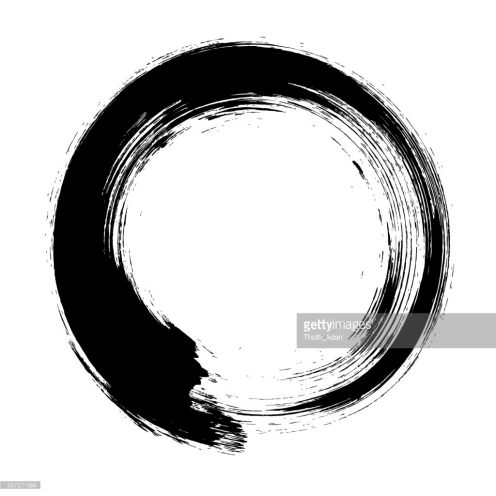ज्ञानविज्ञानयोग
Unification through General and Specific Knowledge
मय्यासक्तमना: पार्थ योगं युञ्जन्मदाश्रय: |
असंशयं समग्रं मां यथा ज्ञास्यसि तच्छृणु || 1||
mayi—to me; āsakta-manāḥ—devotedly attached with mind ; pārtha—the son of Earth; yogam—unification; yuñjan—practicing; mat-āśhrayaḥ—surrendering to me; asanśhayam—free from doubt; samagram—completely; mām—me; yathā—how; jñāsyasi—you shall know; tat—that; śhṛiṇu—listen
O son of Earth! Listen to that by which you shall know me completely, free from doubt, by being devotedly attached to me with mind and surrendering to me by practicing unification.
ज्ञानं तेऽहं सविज्ञानमिदं वक्ष्याम्यशेषत: |
यज्ज्ञात्वा नेह भूयोऽन्यज्ज्ञातव्यमवशिष्यते || 2||
jñānam—phenomenal knowledge; te—unto you; aham—I; sa—with; vijñānam—noumenal knowledge; idam—this; vakṣhyāmi—shall reveal; aśheṣhataḥ—leaving nothing; yat—which; jñātvā—having known; na—not; iha—here; bhūyaḥ—further; anyat—anything else; jñātavyam—to be known; avaśhiṣhyate—remains
Unto you I shall reveal this (general) phenomenal knowledge along with (specific) noumenal knowledge having known which nothing further remains to be known here.
मनुष्याणां सहस्रेषु कश्चिद्यतति सिद्धये |
यततामपि सिद्धानां कश्चिन्मां वेत्ति तत्वत: || 3||
manuṣhyāṇām—of people; sahasreṣhu—out of many thousands; kaśhchit—someone; yatati—makes effort; siddhaye—for perfection; yatatām—of those who make effort; api—even; siddhānām—of those who have achieved perfection; kaśhchit—someone; mām—me; vetti—knows; tattvataḥ—in reality
Out of many people hardly someone makes effort for perfection; and even among those whose achieve perfection, hardly someone comes to know me in reality.
भूमिरापोऽनलो वायु: खं मनो बुद्धिरेव च |
अहङ्कार इतीयं मे भिन्ना प्रकृतिरष्टधा || 4||
bhūmiḥ—earth; āpaḥ—water; analaḥ—fire; vāyuḥ—air; kham—space; manaḥ—mind; buddhiḥ—intellect; eva—certainly; cha—and; ahankāraḥ—ego (identity); iti—thus; iyam—these; me—my; bhinnā—divisions; prakṛitiḥ—(material) nature; aṣhṭadhā—eightfold
The five elements (earth, water, fire, air, space), the mind, the intellect and the ego identity– thus are these the eight-fold divisions of my (material) nature
अपरेयमितस्त्वन्यां प्रकृतिं विद्धि मे पराम् |
जीवभूतां महाबाहो ययेदं धार्यते जगत् || 5||
aparā—inferior; iyam—this; itaḥ—besides this; tu—but; anyām—another; prakṛitim—nature; viddhi—know; me—my; parām—superior; jīva-bhūtām—living beings; mahā-bāho—mighty-armed one; yayā—by which; idam—this; dhāryate—the basis; jagat—the world
O mighty armed one! Besides this inferior (material) nature, know my superior (spiritual) nature– that which sustains living beings in this world.
एतद्योनीनि भूतानि सर्वाणीत्युपधारय |
अहं कृत्स्नस्य जगत: प्रभव: प्रलयस्तथा || 6||
etat yonīni—these two wombs of; bhūtāni—living beings; sarvāṇi—all; iti—that; upadhāraya—know; aham—I; kṛitsnasya—entire; jagataḥ—world; prabhavaḥ—the creation; pralayaḥ—dissolution; tathā—and
Know these natures as two wombs from which all living beings are manifested. I am the source and dissolution of the entire world.
मत्त: परतरं नान्यत्किञ्चिदस्ति धनञ्जय |
मयि सर्वमिदं प्रोतं सूत्रे मणिगणा इव || 7||
mattaḥ—than me; para-taram—superior; na—not; anyat kiñchit—anything else; asti—there is; dhanañjaya—conqueror of wealth; mayi—in me; sarvam—all; idam—this; protam—is strung; sūtre—on a thread; maṇi-gaṇāḥ—set of pearls; iva—like
O conqueror of wealth! There is nothing else that is superior to me. Everything is strung in me like set of pearls on a thread.
रसोऽहमप्सु कौन्तेय प्रभास्मि शशिसूर्ययो: |
प्रणव: सर्ववेदेषु शब्द: खे पौरुषं नृषु || 8||
rasaḥ—taste; aham—I; apsu—in water; kaunteya—son of Earth; prabhā—the light; asmi—I am; śhaśhi-sūryayoḥ—of the moon and the sun; praṇavaḥ—the sacred syllable Om; sarva—in all; vedeṣhu—revealed knowledge; śhabdaḥ—sound; khe—in space; pauruṣham—heroism; nṛiṣhu—in humans
O son of Earth! I am the flavour in water. I am the light of the moon and the sun. I am A.U.M. in all the revealed knowledge, the sound of speech in space and the heroism in humans.
पुण्यो गन्ध: पृथिव्यां च तेजश्चास्मि विभावसौ |
जीवनं सर्वभूतेषु तपश्चास्मि तपस्विषु || 9||
puṇyaḥ—pure; gandhaḥ—fragrance; pṛithivyām—of the earth; cha—and; tejaḥ—splendour; cha—and; asmi—I am; vibhāvasau—in the fire; jīvanam—life; sarva—in all; bhūteṣhu—beings; tapaḥ—austerity; cha—and; asmi—I am; tapasviṣhu—of the ascetics
I am the pure fragrance of the earth and the splendour in the fire. I am the life of all beings and the austerity of the ascetics.
बीजं मां सर्वभूतानां विद्धि पार्थ सनातनम् |
बुद्धिर्बुद्धिमतामस्मि तेजस्तेजस्विनामहम् || 10||
bījam—the seed; mām—me; sarva-bhūtānām—of all beings; viddhi—know; pārtha—son of Earth; sanātanam—the eternal; buddhiḥ—intellect; buddhi-matām—of the wise; asmi—(I) am; tejaḥ—splendor; tejasvinām—of the splendid; aham—I
O son of Earth! Know me as the eternal seed of all beings. I am the intellect of the wise and I am the splendour of the splendid.
बलं बलवतां चाहं कामरागविवर्जितम् |
धर्माविरुद्धो भूतेषु कामोऽस्मि भरतर्षभ || 11||
balam—strength; bala-vatām—of the strong; cha—and; aham—I; kāma—desire; rāga—passion; vivarjitam—devoid of; dharma-aviruddhaḥ—unopposed to nature; bhūteṣhu—in beings; kāmaḥ—(sexual) desire; asmi—(I) am; bharata-ṛiṣhabha—the bull of his clan
O bull of the his clan! I am the strength of the strong, devoid of desire and passion. I am the (sexual) desire in beings, unopposed to nature.
ये चैव सात्विका भावा राजसास्तामसाश्च ये |
मत्त एवेति तान्विद्धि न त्वहं तेषु ते मयि || 12||
ye—whatever; cha—and; eva—certainly; sāttvikāḥ—in peace and truth; bhāvāḥ—states of being; rājasāḥ—in desire and activity; tāmasāḥ—in ignorance and darkness; cha—and; ye—whatever; mattaḥ—from me; eva—certainly; iti—thus; tān—those; viddhi—know; na—not; tu—but; aham—I; teṣhu—in them; te—they; mayi—in me
Whatever be the state of being in the mode of peace and truth (sattva), or in desire and activity (rajas), or in ignorance and darkness (tamas) — is certainly from me. Know that I am not in them (the three gunas), but they are in me.
त्रिभिर्गुणमयैर्भावैरेभि: सर्वमिदं जगत् |
मोहितं नाभिजानाति मामेभ्य: परमव्ययम् || 13||
tribhiḥ—by three; guṇa-mayaiḥ—made by the modes of nature; bhāvaiḥ—states of being; ebhiḥ—all these; sarvam—whole; idam—this; jagat—world; mohitam—deluded; na—not; abhijānāti—know; mām—me; ebhyaḥ—these; param—the supreme; avyayam—imperishable
All these states of being in this whole world, made deluded (in a charming way) by three modes of nature (sattva, rajas, tamas) , do not know me as the supreme imperishable.
दैवी ह्येषा गुणमयी मम माया दुरत्यया |
मामेव ये प्रपद्यन्ते मायामेतां तरन्ति ते || 14||
daivī—divine; hi—certainly; eṣhā—this; guṇa-mayī—made of the modes of nature; mama—my; māyā—illusion that veils; duratyayā—very difficult to transcend; mām—unto me; eva—certainly; ye—who; prapadyante—surrender; māyām etām—this illusion that veils; taranti—cross over; te—they
Certainly, this divine illusion that veils (the ultimate reality), made of three modes of nature, is very difficult to transcend. They who surrender unto me certainly cross over this illusion.
न मां दुष्कृतिनो मूढा: प्रपद्यन्ते नराधमा: |
माययापहृतज्ञाना आसुरं भावमाश्रिता: || 15||
na—not; mām—unto me; duṣhkṛitinaḥ—the wrongdoers; mūḍhāḥ—the fools; prapadyante—surrender; nara-adhamāḥ—the worst of mankind following their own selfish desires; māyayā—by illusion; apahṛita jñānāḥ—those whose knowledge has been purloined; āsuram—those who do not partake of divine intoxication; bhāvam—nature; āśhritāḥ—surrender
The foolish wrongdoers, the worst of mankind who follow their own selfish desires, those whose knowledge has been purloined by illusion, and those of a nature that is not affected by divine intoxication do not surrender to me.
चतुर्विधा भजन्ते मां जना: सुकृतिनोऽर्जुन |
आर्तो जिज्ञासुरर्थार्थी ज्ञानी च भरतर्षभ || 16||
chatuḥ-vidhāḥ—four kinds; bhajante—worship; mām—me; janāḥ—people; su-kṛitinaḥ—righteous; arjuna—fair one; ārtaḥ—the distressed ones; jijñāsuḥ—the curious; artha-arthī—the seekers of wealth; jñānī—the wise; cha—and; bharata-ṛiṣhabha—The bull of his clan
O fair one! The bull among his clan! Four kinds of righteous people worship me: the distressed ones, the curious ones, the seekers of wealth and the wise.
तेषां ज्ञानी नित्ययुक्त एकभक्तिर्विशिष्यते |
प्रियो हि ज्ञानिनोऽत्यर्थमहं स च मम प्रिय: || 17||
teṣhām—among these; jñānī—the wise; nitya-yuktaḥ—always united; ekabhaktiḥ—monotheistic devotion; viśhiṣhyate—dignified; priyaḥ—dear; hi—certainly; jñāninaḥ—to the wise; atyartham—highly; aham—I; saḥ—he; cha—and; mama—to me; priyaḥ—dear
Among these, dignified are the wise always united to me with monotheistic devotion. To the wise person I am extremely beloved and he is loved by me.
उदारा: सर्व एवैते ज्ञानी त्वात्मैव मे मतम् |
आस्थित: स हि युक्तात्मा मामेवानुत्तमां गतिम् || 18||
udārāḥ—noble; sarve—all; eva—indeed; ete—these; jñānī—the wise; tu—but; ātmā eva—my very soul; me—my; matam—perception; āsthitaḥ—situated; saḥ—he; hi—certainly; yukta-ātmā—with integrated soul; mām—in me; eva—certainly; anuttamām—the unsurpassed; gatim—station
Noble indeed are all these (four kinds), but my perception of the wise person is as my very soul. Certainly with his soul integrated in me, he is situated in an unsurpassed station.
बहूनां जन्मनामन्ते ज्ञानवान्मां प्रपद्यते |
वासुदेव: सर्वमिति स महात्मा सुदुर्लभ: || 19||
bahūnām—many; janmanām—births; ante—after; jñāna-vān—the wise; mām—unto me; prapadyate—surrenders; vāsudevaḥ—One in whom all things dwell; sarvam—all; iti—that; saḥ—that; mahā-ātmā—great soul; su-durlabhaḥ—very rare
After many births, the wise one surrenders unto me (knowing) “One in whom all things dwell” is all that there is. Such a great soul is very rare.
कामैस्तैस्तैर्हृतज्ञाना: प्रपद्यन्तेऽन्यदेवता: |
तं तं नियममास्थाय प्रकृत्या नियता: स्वया || 20||
kāmaiḥ—by desires; taiḥ taiḥ—by various; hṛita-jñānāḥ—whose knowledge has been carried away; prapadyante—surrender; anya—to other; devatāḥ—divinely created beings (eg. angels); tam tam—accordingly various; niyamam—laws; āsthāya—pursuing; prakṛityā—by (material) nature; niyatāḥ—controlled; svayā—by their own
Those whose knowledge has been carried away by various desires, surrender to other divinely created beings. Pursuing various laws accordingly they are controlled by their own (inferior) nature.
यो यो यां यां तनुं भक्त: श्रद्धयार्चितुमिच्छति |
तस्य तस्याचलां श्रद्धां तामेव विदधाम्यहम् || 21||
yaḥ yaḥ—whatsoever; yām yām—whichever; tanum—form; bhaktaḥ—devotee; śhraddhayā—with faith; architum—to worship; ichchhati—desires; tasya tasya—to him; achalām—steady; śhraddhām—faith; tām—in that; eva—certainly; vidadhāmi—bestow; aham—I
Whatsoever a devotee desires in whichever form with faith, indeed I make (his) faith steady in that.
स तया श्रद्धया युक्तस्तस्याराधनमीहते |
लभते च तत: कामान्मयैव विहितान्हि तान् || 22||
saḥ—he; tayā—with that; śhraddhayā—by faith; yuktaḥ—united with; tasya—of that; ārādhanam—adoration; īhate—engages in; labhate—obtains; cha—and; tataḥ—from that; kāmān—desires; mayā—by me; eva—alone; vihitān—granted; hi—certainly; tān—those
United with that by faith, he engages in adoration of that. Certainly he obtains from that those desires which are granted by me alone.
अन्तवत्तु फलं तेषां तद्भवत्यल्पमेधसाम् |
देवान्देवयजो यान्ति मद्भक्ता यान्ति मामपि || 23||
anta-vat—exhaustible; tu—but; phalam—fruit; teṣhām—by those; tat—that; bhavati—is; alpa-medhasām—people of little intelligence; devān—to the divinely created beings; deva-yajaḥ—the worshipers of the divinely created beings; yānti—go (or come); mat—my; bhaktāḥ—devotees; yānti—go (or come); mām—to me; api—whereas
But exhaustible is that fruit gained by those people of little intelligence. Those who sacrifice for divinely created beings come to them (who have a beginning and an end), whereas my devotees come to me.
अव्यक्तं व्यक्तिमापन्नं मन्यन्ते मामबुद्धय: |
परं भावमजानन्तो ममाव्ययमनुत्तमम् || 24||
avyaktam—unmanifested transcendent; vyaktim—manifested immanent; āpannam—to have become; manyante—think; mām—me; abuddhayaḥ—fools; param—ultimate; bhāvam—state of being; ajānantaḥ—not knowing; mama—my; avyayam—imperishable; anuttamam—unsurpassed
Fools think of me as the unmanifested transcendence that has become manifested immanence, not knowing my ultimate state of being as the imperishable and the unsurpassed.
नाहं प्रकाश: सर्वस्य योगमायासमावृत: |
मूढोऽयं नाभिजानाति लोको मामजमव्ययम् || 25||
na—not; aham—I; prakāśhaḥ—revealed; sarvasya—to everyone; yoga-māyā—illusion; samāvṛitaḥ—veiled; mūḍhaḥ—foolish; ayam—these; na—not; abhijānāti—know; lokaḥ—people; mām—me; ajam—unborn; avyayam—imperishable
Veiled by illusion, I am not revealed to everyone. These foolish people do not know me as unborn and imperishable.
वेदाहं समतीतानि वर्तमानानि चार्जुन |
भविष्याणि च भूतानि मां तु वेद न कश्चन || 26||
veda—know; aham—I; samatītāni—the past; vartamānāni—the present; cha—and; arjuna—fair one; bhaviṣhyāṇi—the future; cha—also; bhūtāni—all living beings; mām—me; tu—but; veda—knows; na kaśhchana—no one
O fair one! I know the past, the present and also the future. I know all living beings but no one knows me.
इच्छाद्वेषसमुत्थेन द्वन्द्वमोहेन भारत |
सर्वभूतानि सम्मोहं सर्गे यान्ति परन्तप || 27||
ichchhā—desire; dveṣha—envy; samutthena—arise from; dvandva—of duality; mohena—from the illusion; bhārata—descendant of great one; sarva—all; bhūtāni—living beings; sammoham—into delusion; sarge—since birth; yānti—enter; parantapa—who makes others burn
O descendant of great one, who makes others burn! Desire and envy arise from illusion of duality. All living beings enter into delusion at birth.
येषां त्वन्तगतं पापं जनानां पुण्यकर्मणाम् |
ते द्वन्द्वमोहनिर्मुक्ता भजन्ते मां दृढव्रता: || 28||
yeṣhām—whose; tu—but; anta-gatam—completely destroyed; pāpam—sins; janānām—of persons; puṇya—pure; karmaṇām—actions; te—they; dvandva—of dualities; moha—illusion; nirmuktāḥ—free from; bhajante—worship;mām—me; dṛiḍha-vratāḥ—steadfastly
But those persons worship me steadfastly, free from illusion of duality, whose sins are completely destroyed by pure actions.
जरामरणमोक्षाय मामाश्रित्य यतन्ति ये |
ते ब्रह्म तद्विदु: कृत्स्नमध्यात्मं कर्म चाखिलम् || 29||
jarā—from old age; maraṇa—and death; mokṣhāya—for liberation; mām—me; āśhritya—seek refuge in; yatanti—make effort; ye—who; te—they; brahma—Ultimate reality; tat—that; viduḥ—know; kṛitsnam—everything; adhyātmam—self; karma—karmic action; cha—and; akhilam—entire
Those who make effort for liberation from old age and death and seek refuge in me, they know that Ultimate Reality, all of soul and everything of action.
साधिभूताधिदैवं मां साधियज्ञं च ये विदु: |
प्रयाणकालेऽपि च मां ते विदुर्युक्तचेतस: || 30||
sa-adhibhūta—physical; adhidaivam—celestial; mām—me; sa-adhiyajñam—sacrificial; cha—and; ye—who; viduḥ—know; prayāṇa—of death; kāle—at the time; api—even; cha—and; mām—me; te—they; viduḥ—know; yukta-chetasaḥ—united in consciousness
Those who know me as the Lord of the physical, the celestial and the sacrificial, they know me even at time of death, united (with me) in consciousness .
ॐ नमो भगवते वासुदेवाय ||
Posted in Uncategorized



